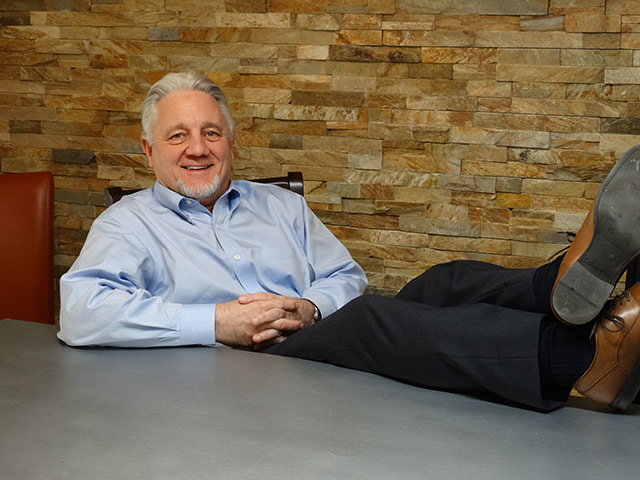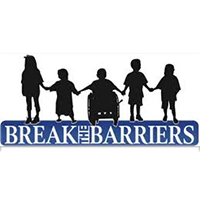“We are improving and ensuring the life circumstances of the beneficiaries we serve by prudent and proper administration of their inheritance as envisioned by the Trustors who established the Trust.”
~ Bruce Bickel
The fiduciary profession has a split personality. A fiduciary can be responsible for matters:
- “of the person” – serving as Conservator of the Person, or as Health Care Agent , in handling health care issues and end-of-life decisions, -OR-
- “of the estate” – being a Trustee, Executor or Conservator of the Estate, responsible for management of financial assets and payment of expenses.
Many private fiduciaries practice on both sides of the profession. Because our fiduciary practice developed from the legal profession as opposed to those who come from the social services side, we only accept appointments for “of the estate” roles.
We have a focused and specialized fiduciary practice.
We concentrate on the administration of estates. We give full-time attention to managing assets and the cash transactions for the beneficiaries as specified by the Trust or Will under which we serve.
In most of our cases, there is no need for someone to handle “of the person” issues (such as when parents appoint us to be trustees over large trust funds which pay distributions over an extended time to their competent sons and daughters.) In many other cases, there is a family member available to handle the health/medical issues for a beneficiary, but the family dynamic dictated that a professional fiduciary would be best suited for financial responsibilities and decisions.

In These Cases, You May Likely Need Our Neutrality and Expertise
Yes, our job requires expertise with dollars and cents. But we are often engaged as fiduciaries for our skill with discernment and sense. As you can imagine, the circumstances of a family trust can generate reactions by the beneficiaries ranging from mild disappointment to down-right hostility. These emotions are understandable and usually arise in one of the scenarios below; each presents reasons for a delayed distribution and/or an unequal distribution between family members which are not looked upon favorably upon by the beneficiaries.
A Child with Challenges
One of the Trustors’ four children has struggled more than the other three. For that son, life has always been hard, and times have always been tough. Good judgment does not come easily for him. The other three can certainly handle an outright distribution of their inheritance. Is it appropriate that all four of them receive their inheritance spread over their lifetimes? Or should a delayed distribution plan only apply to troubled son. Either way, someone will be unhappy.
An Overbearing In-Law
The parents have complete confidence in their daughter’s ability to manage the money and other assets that will be her inheritance, but they have equal confidence in their overbearing son-in-law’s ability to spend and/or lose everything that their daughter inherits. Of course, they can tell her to keep her inheritance as “her separate property,” but is it realistic to expect that will happen. Listen closely. Even now you can hear the son-in-law saying: “Honey, if you really loved me…”
Spendthrift Child
If a person can’t handle money, a lump sum inheritance may do them more harm than good. But they won’t see it that way. Imagine the surprise of a 45-year old son who expected to get a lump-sum inheritance when his parents died. He was sad to learn that his inheritance stayed in a trust. His creditors were equally sad. At least the creditors can’t easily reach the inheritance, and the trust can assure that the funds are available for the son’s remaining lifetime.
Sibling Rivalry
The Trustors had a close and loving relationship with their three children, but there is no love lost among the siblings. They can never reach an agreement. They will argue just for the sake of irritating each other. If anyone of them is appointed as the Trustee, the other two will be enraged and accusatory of every action taken by the “favored” child. If all three of them are appointed as co-trustees, the administration of the estate will come to a screeching halt due to their infighting.
Blended Families
The widow was the fourth wife of the wealthy husband (who had children from each of his three earlier marriages). He placed his estate in a trust with income to his widow for her lifetime, after which the trust estate passes to his children. The widow wants investment income. The stepchildren want investment growth. The stepchildren worry about the widow overspending; the widow worries that the stepchildren want her to live like a pauper.
Necessary Skill Set?
Family members and close friends can be honest, kind and gentle. But do they have the skill set to handle the collection of assets, sales of property, tax filings and the possible conflict and friction among the beneficiaries? Attorneys and CPAs are available to help, but the best trustee candidates will be experienced and decisive.
Ability But No Time
Several family members are of good character and capable of handling the trust administration. But they are all busy with their own occupations and families. Is it fair to ask them to take on what will be the equivalent of an extra part-time job.
Too Much To Ask
You expect that your close friends will miss you when you are gone, but you probably don’t want them to curse you in absentia. That’s likely to happen if you ask them to do you the “favor” of being your trustee. They are likely to say “yes,” and they’ll likely later regret it. The risk of liability is high. Frustration is certain. The gratitude of the beneficiaries is likely to be non-existent.
In such cases, a non-family is better suited to be the Trustee because the fiduciary is a neutral outsider. However, being free of “family baggage” is not enough. The fiduciary must be sensitive to each beneficiary’s perspective. We approach these situations understanding that the administration of the trust has the best chance of success if we earn the confidence of all parties; we work diligently to convey that we respect all beneficiaries, while at the same time honoring the directives of the Trustors.
Katherine M. resigned as a Trustee and asked us to take her place. Her first letter to us expressed her frustration:
I agreed to serve as the Trustee of my parents’ trust after their deaths. After all, they had appointed me, and it seemed like “the family thing to do.” It was the worst decision I ever made. It was a thankless job. My every good deed was criticized. I felt like I was wearing a bulls-eye on my back. “Thanks, Mom and Dad. Thanks for nothing.”
The Rest of the Story…
As soon as we accepted the appointment as “Successor Trustee,” Katherine removed her bulls-eye tunic and she immediately seemed to be taller. The administration of the estate was tumultuous from time to time, but importantly for Katherine, she was not at the center of it. The trust estate is now closed, all of the siblings approved the administration and accepted their distributions. We receive a Christmas card from Katherine every year.
Community Affiliations



